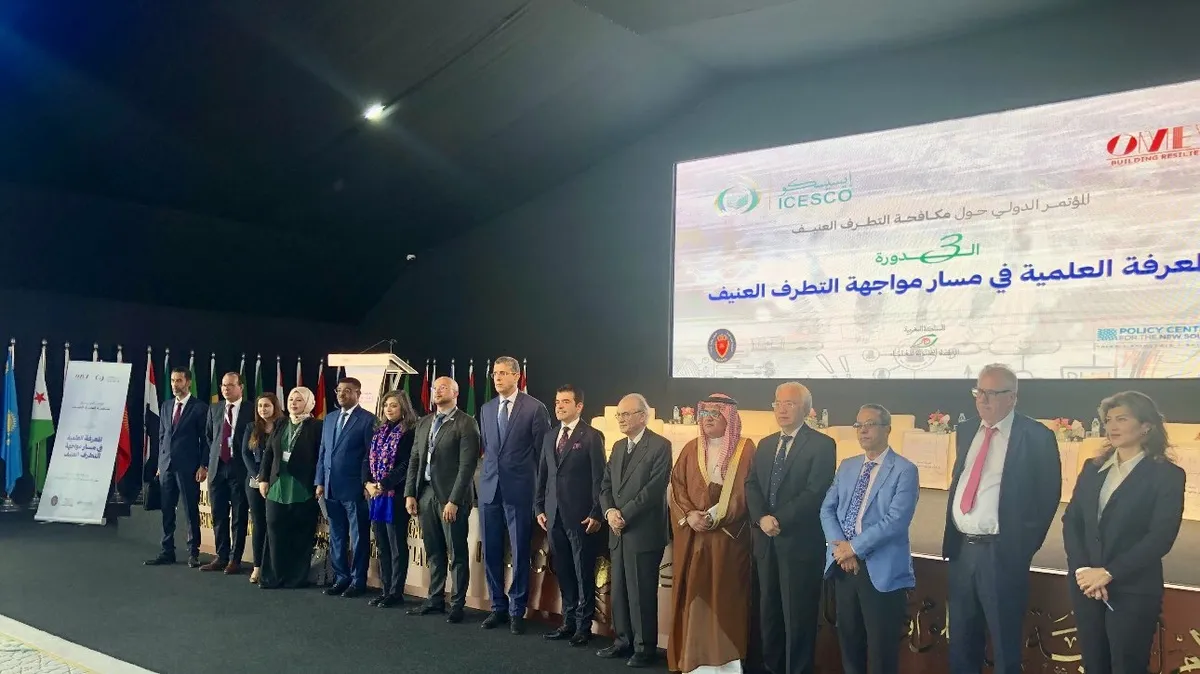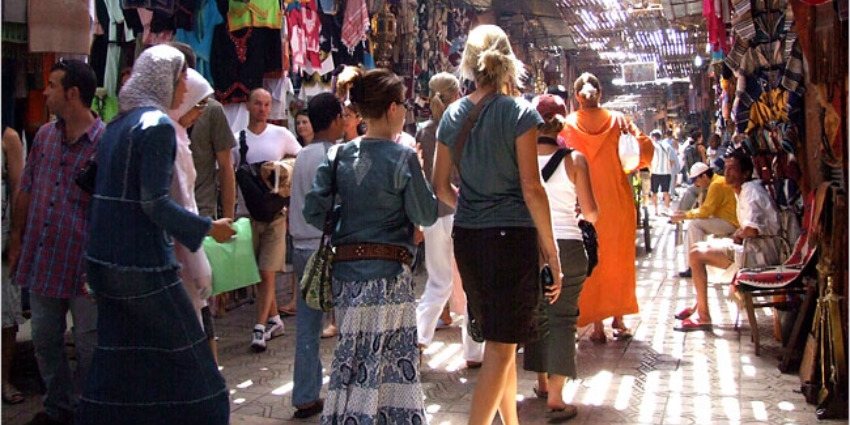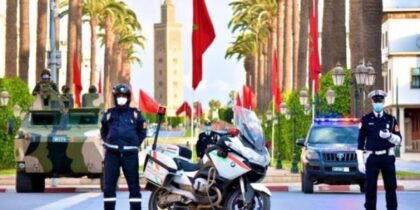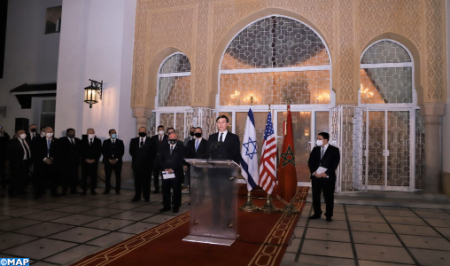Participants at the opening session of the third edition of the International Conference on Countering Violent Extremism, held on Tuesday in Rabat, emphasized the growing role of scientific knowledge in understanding and combating effectively the phenomenon of terrorism.
The two-day event, held under the theme “scientific knowledge to counter violent extremism,” focuses on the ever-evolving landscape of extremism, focusing on five pivotal areas: the role of knowledge, emerging global trends, technology’s use in extremism, deradicalization strategies, and the handling of foreign terrorist fighters along with their families.
With the rapid advancement of technology, its use by extremists poses a significant threat. The conference sheds light on the perils of using technology and artificial intelligence in propagating extremism, calls for international cooperation to counter these digital dangers, and stresses that deradicalization and rehabilitation, as implemented by Morocco, is a path to peace.
Actually, the conference addresses Morocco’s national penal policy to counter-terrorism, underscoring the establishment of rehabilitation programs for prisoners. It underscores the critical need for a comprehensive approach to prevent extremism, encompassing all its aspects and causes.
Scientific knowledge is an essential pillar in the decisive fight against violent extremism, stressed the panelists at the opening session of the conference. A thorough understanding of the complexities and mechanisms involved in extremism and recruitment into terrorist groups contributes to developing a comprehensive and preventive response to this global threat, the panelists said.
Weixiong Chen, Deputy Executive Director of the United Nations Counter-Terrorism Committee Executive Directorate (CTED), stressed that Morocco is a strong partner of CTED in the fight against terrorism and extremism, highlighting the significant progress made by the Kingdom in this field.
He referred to some of Morocco’s best practices in the field, underlining the Kingdom’s firm commitment to the fight against extremism.
In this connection, Minister of Justice Abdelatif Ouahbi said the path of scientific knowledge is part of the measures taken at national and international level in the field of the fight against terrorism and the prevention of extremism, noting that strengthening dialogue between civilizations, cultures, and peoples depends on the adoption of instruction and awareness plans and programs.
“The Kingdom has embarked on a national penal policy to counter terrorism and prevent extremism, through a number of measures, including the consolidation of its legislative system with preventive provisions ensuring its immunization against tendencies towards extremism and violence;” said Ouahbi, who also referred to the establishment of administrative, judicial, security and financial bodies guaranteeing the effectiveness and efficiency required to deal with terrorism and extremism.
Ouahbi likewise highlighted the implementation in Morocco of rehabilitation programs for prisoners in this category, the most important of which is “Moussalaha”, which has enabled its beneficiaries to thoroughly understand the religious text and the authentic values of society.
He also referred to the National Crime Observatory, set up by the Ministry of Justice with the aim of gaining an insight into all the factors influencing criminal behavior.
Director General of the Rabat-based ICESCO, Salem bin Mohammed Al-Malik, underscored the value of both experimental and human sciences in this battle against extremism.
For her part, Amina Bouayach, President of the National Human Rights Council (CNDH), noted that the universality of human rights takes into account the common denominators between all human beings, despite cultural, behavioral, religious and political differences.
The conference is organized by the Moroccan Observatory on Extremism and Violence, in collaboration with ICESCO, the General Delegation for Prison Administration and Reintegration (DGAPR), the Rabita Mohammadia of Ulemas, and the Policy Center for the New South (PCNS).



